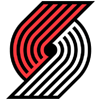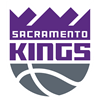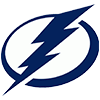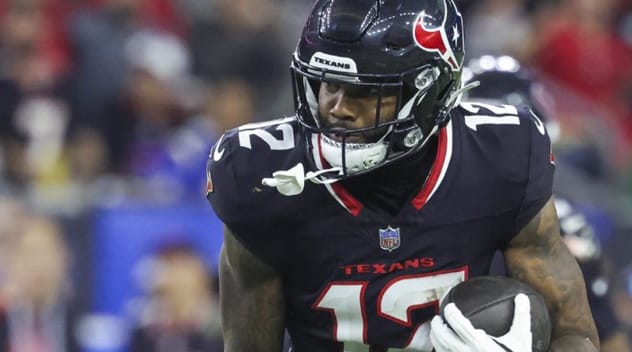This Job Battles article will look at the Miami running backs, and the Cleveland wide receivers behind Odell Beckham/Jarvis Landry.
Miami Running Backs
Jordan Howard (96.71 NFFC, 93.18 BB10)
Matt Breida (99.79 NFFC, 103.49 BB10)
Patrick Laird (294.57 NFFC, N/A BB10)
Myles Gaskin
Kalen Ballage
The Dolphins rushing attack was uniquely bad in 2019, displaying awful efficiency (3.3 YPC) despite offering next to nothing in the way of volume (1,156 yards, last in the league). A ground game this historically bad was bound to improve by meaningless variance if nothing else, but the Dolphins took additional measures to make sure they get a better return in 2020. They almost certainly will.
Not only did they add Jordan Howard in free agency, but the Dolphins sent a fifth-round pick to the 49ers in exchange for Matt Breida, giving the team a pretty obvious thunder/lightning combo, with Howard's work taking up more of the power running while Breida gets more of the hurry-up and pass-catching situations. Neither player is a world beater, but they're both serviceable, which is a huge improvement over the team's collection of talent in 2019. Howard can't threaten as a receiver and lacks elusiveness, but he falls forward and generates positive yardage at a reliable rate, which is illustrated by his career output of 4.3 yards per carry and 30 rushing touchdowns over 897 attempts. The Dolphins defense should be much improved in 2020, so the Dolphins might look to feature Howard during neutral
This Job Battles article will look at the Miami running backs, and the Cleveland wide receivers behind Odell Beckham/Jarvis Landry.
Miami Running Backs
Jordan Howard (96.71 NFFC, 93.18 BB10)
Matt Breida (99.79 NFFC, 103.49 BB10)
Patrick Laird (294.57 NFFC, N/A BB10)
Myles Gaskin
Kalen Ballage
The Dolphins rushing attack was uniquely bad in 2019, displaying awful efficiency (3.3 YPC) despite offering next to nothing in the way of volume (1,156 yards, last in the league). A ground game this historically bad was bound to improve by meaningless variance if nothing else, but the Dolphins took additional measures to make sure they get a better return in 2020. They almost certainly will.
Not only did they add Jordan Howard in free agency, but the Dolphins sent a fifth-round pick to the 49ers in exchange for Matt Breida, giving the team a pretty obvious thunder/lightning combo, with Howard's work taking up more of the power running while Breida gets more of the hurry-up and pass-catching situations. Neither player is a world beater, but they're both serviceable, which is a huge improvement over the team's collection of talent in 2019. Howard can't threaten as a receiver and lacks elusiveness, but he falls forward and generates positive yardage at a reliable rate, which is illustrated by his career output of 4.3 yards per carry and 30 rushing touchdowns over 897 attempts. The Dolphins defense should be much improved in 2020, so the Dolphins might look to feature Howard during neutral or winning game scripts. Breida is smallish (5-9, 195) but supremely explosive, boasting a 4.39 40 to go along with a 42-inch vertical and 134-inch broad jump. Look for Breida to play an off-the-bench role as a runner in neutral situations while otherwise taking over the backfield when the Dolphins need to play catch-up or hurry-up. In these respective roles Howard and Breida should enjoy a fair amount of job security.
Kalen Ballage simply can't play as an NFL running back and the Dolphins will learn this at some point if they haven't already. His athleticism is functionally useless at running back, and beyond that he has no actual running back skills. Indeed, Ballage was the primary culprit of Miami's implausibly bad ground game in 2019, somehow turning 74 carries into 135 yards and three touchdowns (1.8 YPC) while wasting 24 targets to the tune of 63 yards on 14 receptions. If Ballage is in the NFL in two years it's because he changed positions.
Patrick Laird and Myles Gaskin still have some prayer of earning meaningful snaps in the NFL, but they are modest prospects at best and generally showed limited ability from scrimmage last year. Gaskin showed a little something as a runner in his rookie year, following a dominant four-year career at Washington, so he's a candidate to emerge as the team's backup running specialist behind Howard. Laird is the opposite – a non-factor as a runner but one with legitimately intriguing pass-catching ability as a backup. If Gaskin projects as Howard's backup, then Laird might be the backup for Breida.
Cleveland Backup Wide Receivers
Rashard Higgins (297.43 NFFC, N/A BB10)
Donovan Peoples-Jones (297.43 NFFC, N/A BB10)
Damion Ratley
Taywan Taylor
Odell Beckham and Jarvis Landry are locked in as the two lead Cleveland wide receivers – Beckham generally outside and Landry generally in the slot – but the rotation behind them is unclear.
The Browns intend to use a lot of two-tight end formations under new coach Kevin Stefanski, which perhaps limited the team's urgency in addressing the wide receiver position this offseason. Even though Beckham (sports hernia) and Landry (hip) both had offseason surgeries, the Browns appear content to let Rashard Higgins, Donovan Peoples-Jones, Damion Ratley and KhaDarel Hodge battle it out for the team's WR3 role.
Higgins should probably be considered the favorite, even coming off an alarmingly bad 2019 season. Higgins was supposed to be the WR3 for the Browns last year, but some sort of issue between him and the since-fired coach Freddie Kitchens led to a personal standoff of some kind. Higgins was excellent in 2018, drawing 53 targets on 484 snaps while generating 39 receptions for 572 yards and four touchdowns (73.6 percent catch rate, 10.8 YPT), and he was off to a fast start in Week 1 of 2019 for the Browns before he suffered a knee injury. Although likely a below-average athlete, Higgins was even more productive than Michael Gallup at Colorado State, so that combined with his 2018 season gives reason to think he can play wide receiver. Pertinently, Higgins is probably the Browns receiver who profiles best to back up Landry for slot functions.
Higgins might not project as well outside, though, as Ratley or even the rookie Peoples-Jones. A sixth-round pick out of Texas A&M in 2018, Ratley has flashed some downfield ability in his two years with the Browns, catching 25 of 44 targets for 344 yards on 442 snaps. With 4.39 speed, Ratley poses a more convincing threat outside than Higgins does. Peoples-Jones didn't show much of a downfield skill set at Michigan, but with a 4.48 40, 44.5-inch vertical, and 139-inch broad jump at 6-2, 212, they don't come much more athletic than that. Although raw after turning 21 in February, Peoples-Jones arguably has more immediate upside than Ratley because Peoples-Jones might have a slightly more slot-friendly skill set than the outside-oriented Ratley. Peoples-Jones might be able to earn snaps behind both Beckham and Landry, in other words, whereas Ratley might only be able to earn snaps behind Beckham outside.
Taywan Taylor is the weirdest one of the bunch and is probably a very long shot after the Titans dumped him and the Browns made him a healthy scratch all of 2019, but it might be too early to write him off for good. The former third-round pick out of Western Kentucky is still only 25, and he's a clear standout athlete at 5-11, 203 with a 4.50 40, 132-inch broad jump, and 10.78 agility score. Perhaps there's some sort of off-field issue that has held back Taylor's talent from manifesting to this point, but he was incredibly productive at Western Kentucky as well, catching 98 of 140 targets his senior year for 1,730 yards and 17 touchdowns (70.0 percent catch rate, 12.4 YPT). Taylor was productive in his two years with the Titans, too, so his apparent alienation from one or both teams is difficult to explain.


































